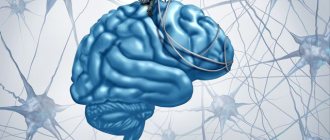Stress is the body's response to external stimuli, threat, negative emotions, fatigue, nervous tension.
This reaction can be mental, emotional, chemical, physical. Hans Selye was the first to formulate the concept of stress. The word “stress” itself means “pressure”.
During times of stress, the body releases stress hormones (adrenaline and cortisol). In small quantities, stress is good for the body and life, it helps to activate the body's strength, helps to think and make decisions, increases vitality and makes us more energetic.
On the other hand, excess stress is harmful to health and quality of life.
What does it look like?
Stress is not considered a disease, but it has its own symptoms. The main signs of stress include:
- constant feeling of irritation, depression (often for no apparent reason);
- disturbing sleep, insomnia;
- feeling tired, weak, headaches, depression;
- absent-minded attention, slow thinking, memory problems;
- problems with rest;
- general apathy, and apathy towards friends and family;
- increased tearfulness, feeling of self-pity;
- decreased appetite or overeating;
- the appearance of nervous tics and obsessive states.
Our attitudes are a habit
Can a subconscious attitude be called a habit? Yes, you can. As children, we could not control ourselves, our fears and thoughts. Therefore, we automatically, subconsciously absorbed the attitudes that surrounded us. Who took an active part in our upbringing? Of course, parents, school, yard, other people, TV, books. In a word, everyone with whom or what we have encountered.
Thus, having penetrated into our subconscious, attitudes became a habit and took root within us. Having matured, we again come face to face with these attitudes, although we consciously understand their naivety and falsity. However, eradicating a habit is not as easy as it might seem, because you need to work at it.
An example of a false installation. As a child, you convinced yourself that spiders are extremely dangerous and can attack. Thus, you have developed a fear, a phobia of these insects. Having become an adult, and having received a lot of evidence that ordinary spiders are not monsters at all, you still continue to fear them like fire, because the child’s attitude is in effect.
Interesting - Panic attacks causes and factors
The subconscious is a powerful thing. And sometimes we simply don’t realize why we’re afraid of spiders or something else.
How to quickly get out of an acute stressful situation
In order to get out of a state of acute stress, there are several simple techniques:
- Breathing exercises . You need to inhale slowly through your nose, hold your breath, and exhale slowly. As you do this, imagine that stress leaves you with every exhalation, and every inhalation brings confidence and calm.
- A minute's rest . You need to relax the edges of your mouth, and then all the muscles of your face, moisten your lips, and relax your shoulders. Concentrate your attention on the position of your body and face - they are a reflection of your thoughts and inner state. Change your facial expression and body position through breathing exercises and muscle relaxation. This relaxation technique can be used in any situation.
- Transfers . Look carefully at the room you are in. Pay attention to all details and objects. Start mentally slowly naming these items one by one. When you focus on this listing, it will help you take your mind off tension and begin to rationally perceive your surroundings.
- Sports . Boxing classes are ideal. Many Japanese companies offer employees a mannequin with the director's face so they can blow off steam on it.
- Physical work . Physical work helps reduce internal tension.
- Be aware of and express your emotions . Tell other people directly how you feel. This will help avoid misunderstandings, as well as a possible emotional explosion in the future. You should also talk about a specific situation, without generalizations or references to the past.
- Switching . Instead of worrying and digesting a stressful situation, you need to switch to finding a way out of it.
- Attitude to the situation . Often the situation cannot be changed, so you need to change your attitude towards it. Perhaps find the positives, or perhaps let go of the fear.
Phases of stress
Stress goes through several phases in its development:
- The alarm phase is the body's quick response to various changes. This state is characterized by slight arousal. You should know that the greater the change, the greater the stress.
- The resistance phase is the stage of activation of a more serious protective reaction of the body. It occurs if the first phase did not solve the problem. In the second stage, the human body goes into a mode of increased resistance. This condition is characterized by increased human performance.
- Exhaustion phase. If the previous stage lasts too long, then a person’s energy resources are depleted, which leads to disturbances on the emotional level and a sharp decrease in performance. At this stage, you will already need advice from a psychologist: how to get out of stress yourself.
How to get rid of chronic stress and depression
You can get out of stress on your own. However, in case of chronic stress, sometimes seeking medical help cannot be avoided. There are a number of signs for which it is recommended to consult a psychologist or neurologist:
- stress and anxiety last more than two weeks;
- feeling of depression and apathy;
- suicidal thoughts, thoughts about the lack of meaning in life;
- decreased immunity, the appearance of psychosomatic diseases;
- sleep problems, insomnia, nightmares;
- chronic fatigue, weakness, increased or decreased appetite.
The doctor will prescribe medications that can alleviate the patient's condition. Most often, you can get rid of stress and depression using the following groups of medications:
- sedatives – give a mild sedative effect, based on herbal components;
- antidepressants – improve mood;
- tranquilizers – help relieve anxiety, stress, phobias and fears;
- mood stabilizers – regulate mood and emotions;
- nootropics – improve brain activity and memory;
- neuroleptics – regulate the production of neurotransmitters in the body.
In addition to drug treatment, there are other methods of dealing with chronic stress. These methods include:
- psychotherapy;
- herbal medicine;
- sport;
- sun treatment;
- anti-stress diet;
- hobbies and creativity;
- traditional methods (bath and apitherapy);
- soothing baths;
- animal treatment.
Treatment of stress will be effective if at least 4-6 methods listed below are used in combination:
- Psychotherapy . There are several psychotherapeutic methods for treating stress: hypnotherapy, gestalt therapy, cognitive behavioral therapy. Hypnotherapy helps relieve stress from the cerebral vessels and heart, bringing a feeling of calm. Gestalt therapy helps to find out the cause of chronic stress or depression by putting all the parts of the problem together. Cognitive behavioral therapy helps to find out the causes of internal conflicts, as well as solve the problem of anxiety.
- Herbal medicine . Different herbs can help fight different problems. Herbs and herbs are used to make infusions, decoctions, or simply used as an alternative to tea. Pharmacies offer a wide variety of preparations, and you can also prepare them yourself. Herbs with a sedative effect: St. John's wort, chamomile, valerian, mint, thyme, oregano.
- Herbal medicine cannot be a complete treatment for depression, but it can be used as an auxiliary method.
- Sports . Exercising normalizes blood circulation, increases tone and helps supply the brain with oxygen. The most recommended sports and types of physical activity include fitness and aerobics, team games, swimming, jogging, skiing and speed skating.
- Sun treatment . For some people, symptoms of depression and stress are associated with a lack of vitamin D. In this case, sunbathing, visiting a solarium, and walking outside in sunny weather are recommended.
- Diet against stress . To combat mild depression and stress, you need to eat foods that stimulate the production of serotonin: pumpkin, bell peppers, carrots, tomatoes, persimmons, citrus fruits, apricots, bananas. When dealing with stress, it is also advisable to have fatty fish (mackerel, salmon, herring), pasta (durum wheat), baked potatoes, and cocoa in your diet.
- Hobbies and creativity . Having a hobby helps you overcome stress, give vent to your emotions, and put your thoughts in order. For chronic stress, knitting, embroidery, sewing, drawing, modeling, applique, wood carving, and model assembly are recommended.
- Traditional methods (bath and apitherapy) . The thermal effect in the bath has an anti-stress effect. Even more effective is the use of birch, oak and eucalyptus brooms. Apitherapy is the use of bee products. Propolis and royal jelly have a positive effect on the psychological state and improve well-being. Soothing baths. Taking a bath with essential oils, ginger, sea salt, and herbal infusions can relieve stress and restore mental balance.
- Animal treatment . Contact with some animals helps to get rid of insomnia, neuroses, and depression. These animals are cats, horses, dolphins.
How does stress affect the human body?
Stress greatly affects the functioning of all body systems. Under its influence the following occurs:
- Blood sugar levels increase. This mechanism promotes the activation of protective forces. But frequent increases in glucose can lead to diabetes.
- The production of leukocytes decreases. The immune system weakens, causing diseases to develop.
- Muscle tissue tenses. Staying in good shape without periods of relaxation leads to the destruction of muscle cells, including internal organs.
- Capillaries expand. This process can cause disruption of blood supply and dysfunction of the cardiovascular system.
- There are disruptions in metabolism. As a result, a large number of toxins are produced, which are not eliminated in a timely manner, but accumulate in the body.
Stress manifests itself on different levels. From the psychosomatic side, the following signs may be observed:
- manifestation of aggression, irritability, anger;
- sudden changes in a person’s emotional state;
- loss of strength, apathy;
- insomnia, frequent awakenings;
- neurotic conditions, increased anxiety, lack of self-confidence;
- constant headaches;
- disturbances in the hormonal system;
- heart rhythm failure;
- decreased performance;
- decreased sense of self-confidence;
- exacerbation of chronic diseases and the risk of developing new ones.
Some experts also point to the beneficial effects of stress on the human body.
For example, the production of adrenaline increases, which can affect the performance of active actions, the purpose of which is to eliminate the causes of stress. Another positive effect: the desire to get out of a stressful state forces a person to seek support and help from relatives and friends, as a result of which deeper and stronger connections are established with them. Overcoming stress can raise a person's self-esteem and increase his confidence.
However, a stressful state has more disadvantages, so it is important to get out of it in time.
How to restore the nervous system after stress
After overcoming stress, the body's resources remain depleted. It is necessary to replenish energy reserves and restore balance in the mind and body. Meditation and yoga and yogic breathing techniques can help with this. These methods allow you to recover quite quickly physically and energetically, and provide a large boost of energy.
A good method of renewing the body's resources after stress is healthy, sound sleep. It will allow you to restore your body and psyche.
If possible, sanatorium holidays, resort holidays, and trips to the sea are recommended. As a more affordable alternative, you can take walks in nature and chat with friends.
Some are also suitable for extreme sports: rock climbing, hiking, skydiving, rope jumping. Less extreme methods include amusement rides.
These methods give vivid impressions, energize and help switch consciousness.
How to restore the nervous system after prolonged stress:
What kind of stress is there?
There are two types of stress:
- distress;
- traumatic.
Distress is a process that impairs the functioning of all psychophysiological functions. It is usually referred to as prolonged stress, during which the body uses up all its resources. It is this type that can lead to psychological diseases: neurosis or psychosis.
Traumatic stress is a condition that occurs in situations that threaten the life and health of loved ones. The overload of the body is so strong that it simply cannot cope with it, and the body’s protective reaction is destroyed.
Useless Beliefs
Often the cause of our mistakes is our fixed thoughts and beliefs. For example, you have been told all your life that you need to work in your specialty. One fine day, you stopped questioning this thought, believed in it, and now stick to a job you don’t like because it fits your belief.
Steady thoughts often work in tandem with controlling emotions. In a work situation, this could be a fear of helplessness or loneliness. The brain builds a logical chain: “If I quit, I won’t be able to find a new job, I’ll be poor, lonely and useless.”
If you notice that your actions are guided by a categorical statement (you cannot argue with your elders, even if they are wrong; you need to start a family before the age of 30, etc.), first of all, think about where it came from. Why did you believe him? Does it benefit or harm you? How would your life be different if this belief changed?
Try to “reprogram” yourself - instead of “you need to work in your specialty,” say “it’s nice to work in an area where I’m good.” Sometimes this alone is enough to decide to learn a new profession and radically change the type of activity.
Negative emotions
If your behavior is triggered by a strong negative emotion (fear of becoming helpless, losing control of the situation, etc.), it is best to seek help from a specialist. It will help solve the problem in just two or three sessions. But if this is not possible, then it’s worth working on your own.
Knowing what emotion drives your behavior can help you understand how to change it. At the same time, you cannot ignore your feelings or suppress them - the consequences will be more serious than at the start. The thing is that our brain is excellent at masking a problem and finding convenient rational arguments for it.
For example, a jealous husband in his heart completely justifies his behavior by the fact that his wife behaves too uninhibitedly and herself gives reasons for jealousy. But in reality, he is driven by the fear of loneliness and helplessness. He is afraid of feeling hurt in the future and being abandoned, so he tries to gain maximum control over his partner.










